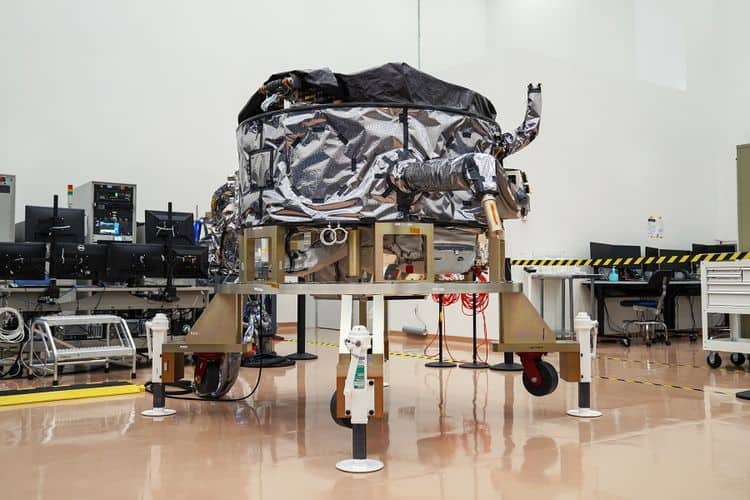
Northrop Grumman Corporation has successfully delivered an ESPAStar-D spacecraft bus to L3Harris in support of the U.S. Air Force Research Laboratory (AFRL) Navigation Technology Satellite-3 (NTS-3) mission set to launch from Cape Canaveral in 2022.
The NTS-3 bus was built in Northrop Grumman’s satellite manufacturing facility in Gilbert, Ariz. The facility is currently undergoing an expansion to add more than 100,000 square feet of production space, increasing the overall ESPAStar Integration and Test capacity.
ESPAStar-D is designed to accommodate combinations of hosted and separable experimental payloads on six common and configurable payload ports.
The platform uses an Evolved Expendable Launch Vehicle (EELV) Secondary Payload Adapter (ESPA) ring as its primary structure, allowing multiple ESPAStars to be stacked together on a single launch vehicle.
The platform can support missions in geosynchronous orbit (GEO), low Earth orbit (LEO) and medium Earth orbit (MEO).
“Our unique ESPAStar platform provides proven solutions for customers seeking a modular, cost-effective and highly capable spacecraft bus for hosting technology development and operational payloads,” said Blake Bullock, vice president, National Security Space, Tactical Space Systems, Northrop Grumman.
“ESPAStar’s innovative design offers unmatched flexibility for orbit locations and deployment, and we are proud to partner with L3Harris to meet all of our customers’ requirements, including target cost goals supporting the Air Force’s on-orbit deployment schedule.”
The experimental NTS-3 payload is designed to augment space-based position, navigation and timing (PNT) for warfighters and features a modular design capable of supporting various mission needs.
In addition to the NTS-3 mission, Northrop Grumman is partnering with the U.S. Air Force Space and Missile Systems Center (AFSMC) in its mission to deliver resilient and affordable space capabilities with the production of three ESPAStar platforms for Long Duration Propulsive Evolved Expendable Launch Vehicle (LDPE) (EELV) missions. LDPE-1 is scheduled to launch in 2021 with the Space Test Program 3 mission.












